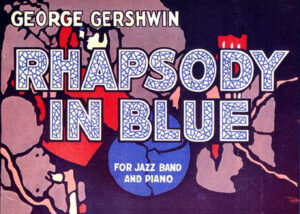Piano Forum
 |
Rhapsody in Blue – A Piece of American History at 100! The centennial celebration of George Gershwin’s Rhapsody in Blue has taken place with a bang and noise around the world. The renowned work of American classical music has become synonymous with the jazz age in America over the past century. Piano Street provides a quick overview of the acclaimed composition, including recommended performances and additional resources for reading and listening from global media outlets and radio. Read more >> |
Pages: [1] Go Down
Pages: [1] Go Up
For more information about this topic, click search below!
 Topic: Liadoff, four more Preludes, Opp. 11/1, 24/1, 31/2 & 40/3
Topic: Liadoff, four more Preludes, Opp. 11/1, 24/1, 31/2 & 40/3